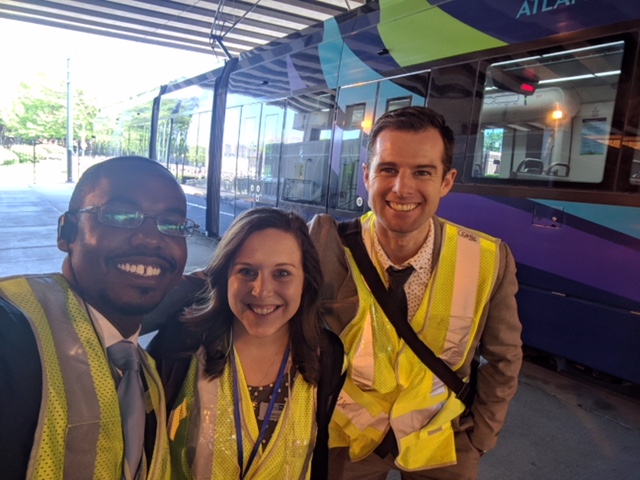Before becoming a transportation researcher, I worked in public health and healthcare, where benchmarking and peer exchange are critical to the industry. Hospitals and healthcare organizations are constantly competing with one another to improve outcomes and quality. For example, one of the highest honors in healthcare is to receive the Malcolm Baldrige National Quality Award, which recognizes organizations that systematically evaluate themselves, set ambitious goals, and continuously improve to meet those goals. A critical component of process improvement is benchmarking oneself against and learning from peer organizations. In healthcare, this practice is common. High performers compare outcomes and metrics against one-another, and exchange best practices.
One of the projects I’m working on as a researcher at the Georgia Institute of Technology is looking at how to help transit agencies improve operations and service quality through benchmarking and peer exchange. This week, I had the good fortune of observing the EnoMAX program in Atlanta. The EnoMAX program brings similar transit agencies together to put knowledge sharing into action. Professionals from Denver Regional Transportation District (RTD) and Phoenix Valley Metro joined colleagues in Atlanta from the Metropolitan Atlanta Regional Transit Authority (MARTA) to learn about MARTA and its operations. Over the course of the week, professionals learned about MARTA’s history, operations and maintenance, asset management, service planning, police services, and beyond. Later in the year, the other two agencies, RTD and Valley Metro, will take their turns hosting the cohort and showing the best of their respective agencies. EnoMAX has another cohort composed of the Dallas Area Rapid Transit (DART), Sound Transit of Seattle, and the Los Angeles County Metropolitan Transportation Authority, participating in the same program.

David Ederer (r) with MARTA employee and MAX participant Nicholas Gowens and Carolyn Dorf, program and events associate at Eno.
Each agency brought professionals from several departments, from operations to maintenance to social media managers. The program then matched participants with a peer at another agency. In this way, participants learned about another approach to transit management and operations, and had an opportunity to reflect on and communicate their own style and process of operation. It’s rare to be able to have an opportunity to step back from one’s day-to-day and think about why you conduct your job in the way that you do, what alternatives there might be to your current practices, and on how you might be improve what you do.
Beyond simply giving professionals a peer to exchange ideas with, EnoMAX gave us an inside look at each aspect of transit agency operations. Understanding what different divisions at an agency do on a daily basis can help others perform their own job more effectively and build camaraderie within the agency.
As a researcher, getting an inside look at how a transit agency functions was enormously helpful. I am certain that EnoMAX participants found it equally useful, and I hope that transit agencies, like healthcare organizations, develop a collegial environment of benchmarking against one-another to help improve quality for their customers.



